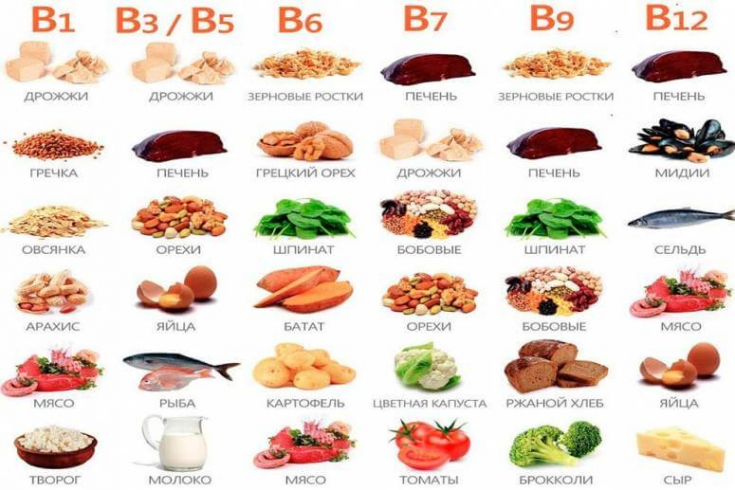Our body needs about 13 essential vitamins, eight of which are B vitamins. Although they are found in many foods, they are water soluble and break down easily, especially during cooking.
In addition, the body does not accumulate these trace elements well, and therefore an improper diet can instantly lead to a deficiency of B vitamins.
On estet-portal.com read how to recognize the deficiency of these elements by the clinical picture, how to compensate for it, and also how to improve skin condition with the help of B vitamins.
B vitamins: why they are so important
There are eight B vitamins, each of which performs its own unique function in the human body. Most of them are indispensable "soldiers" in the processes of synthesis of the human body.
It is not surprising that the deficiency of any of these elements is instantly accompanied by a disruption in the work of several organs or systems at once. Most often, a moderate deficiency of B vitamins is reflected in the patient's skin, and a more pronounced deficiency of these microelements is manifested by lesions of the nervous system.
D Vitamins and their impact on the body: expert advice
B vitamins: how to recognize a deficiency
Thiamin, also known as vitamin B1, helps convert glucose into energy and keeps the nervous system functioning properly. The first symptoms of his deficiency – it is dryness and loss of elasticity of the skin.
Riboflavin(B2) – this is just the vitamin from group B, which is responsible for the health of the skin. Deficiency symptoms include cheilitis, hair loss, and skin rashes.
The main task of riboflavin – ensure skin regeneration.
Niacin(B3) plays an important role in energy metabolism, which is why it is so important for the health of the whole body.
Pantothenic acid is needed for the production of red blood cells and steroid hormones. The lack of pantothenic acid is manifested by loss of elasticity and skin tone.
Pyridoxine (B6) is necessary for protein and carbohydrate metabolism, the formation of red blood cells, affects the development of the brain, immunity and the activity of steroid hormones. Its deficiency is manifested by insomnia, depression, anemia, cheilitis, convulsions and dermatitis.
Biotin (B7) is necessary for the synthesis of fats and glycogen, and therefore its deficiency can be manifested by blanching, dry skin and dermatitis, hair loss, muscle pain.
Folic acid is essential for the formation of red blood cells, DNA synthesis and cell growth. The deficiency of this element is easy to recognize – the skin becomes gray and dull.
Vitamin B12 is necessary for almost all processes in the human body. Its deficiency is most common in the elderly and vegans. Deficiency symptoms include fatigue, weight loss, depression and memory loss.
Waiting for a miracle: vitamins for pregnancy planning
How to compensate for the lack of B vitamins
Good sources of thiamine include whole grains, seeds (especially sesame seeds), legumes, wheat, nuts, yeast, and pork.
In Australia, quality standards require white and whole grain flours used for bread to be fortified with thiamine.
Optimal sources of riboflavin are dairy and meat products, whole grain breads and cereals, green vegetables, yeast.

Niacin can be obtained from almost all animal products. To compensate for the lack of pyridoxine, it is necessary to include grains and legumes, herbs and vegetables, seafood, meat, nuts, liver and fruits in the diet.
The main sources of biotin – these are cauliflower, egg yolks, peanuts, liver, yeast and mushrooms.
Good sources of folic acid are leafy greens, legumes, seeds, liver, poultry, eggs, cereals, and citrus fruits.
From September 2009, all flour used in bread production (except flour used in bread listed as "organic") must be fortified with folic acid.
Sources of B12 include liver, meat, milk, cheese and eggs.
Specialists distinguish three groups of people at increased risk prone to deficiency of B vitamins:
• patients over 65 years of age are less able to absorb B vitamins due to a decrease in stomach acidity;
• vegetarians, whose diets often lack the main sources of this group of vitamins;
• smokers and those who abuse alcohol.
However, many experts also argue that vitamin B deficiency is much more common than it seems. And the chronic deficiency of these elements is harmful to the beauty, health and quality of life of patients.
Read the latest articles in Telegram!







Add a comment